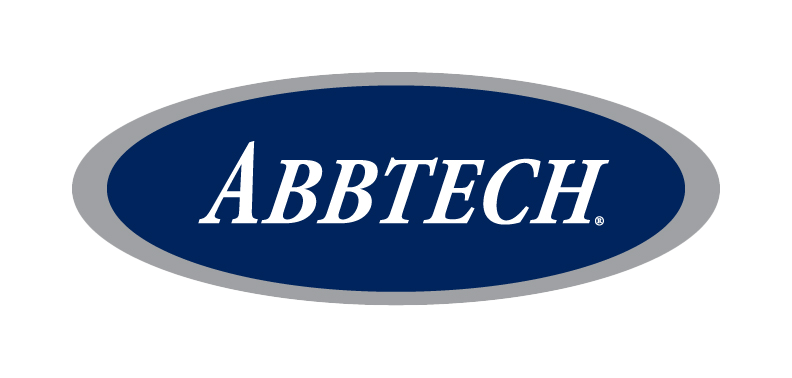Picture this: A star employee who left your company a year ago reaches out about coming back. They’ve gained new skills, grown professionally, and miss your company culture. Should you welcome them back with open arms, or is rehiring former employees a recipe for disaster? These “boomerang employees” are becoming more common in today’s job… Continue reading Does it Make Sense to Re-Hire a Former Employee?
Tag: Job Candidate
How to Become the Best Coworker Possible in 2025
Being a great coworker isn’t just about doing your job well — it’s about making everyone around you better. As workplace dynamics shift and hybrid work becomes the norm, the art of being an exceptional teammate has evolved. Let’s explore how you can become that person everyone wants on their team in 2025. Master the… Continue reading How to Become the Best Coworker Possible in 2025
Stuck in a Job Rut? Three Questions to Help Get Yourself Un-Stuck
Feeling stuck in your career is a common experience many of us face at some point. You may feel unfulfilled, lack motivation, and struggle to see a way forward. But there is hope! By asking yourself a few vital questions, you can gain clarity and start taking steps towards a more satisfying career path. Reflecting… Continue reading Stuck in a Job Rut? Three Questions to Help Get Yourself Un-Stuck
Three Effective Tips to Get the Most From Your Year-End Reviews
As 2024 draws to a close, many organizations are gearing up for year-end performance reviews. While these evaluations are a standard practice, they often feel like a perfunctory exercise for both managers and employees. However, with the right approach, year-end reviews can become a powerful tool for growth, goal setting, and boosting engagement as you… Continue reading Three Effective Tips to Get the Most From Your Year-End Reviews
Facing Uncertain Times: What Your Team Wants to Hear From Their Leaders
Navigating periods of uncertainty and change is an inevitable part of professional life. In these challenging moments, the role of a leader becomes even more critical. Transparent communication is the key to boosting morale, building trust, and keeping everyone aligned with organizational goals. Your team is looking to you for guidance and reassurance. Key Messages… Continue reading Facing Uncertain Times: What Your Team Wants to Hear From Their Leaders
How Can Technical Professionals Improve Their Job Security?
Staying relevant, upskilling, and positioning yourself as an indispensable asset are critical to advancing your career.
Five Qualities of an All-Star Recruiting Firm
What qualities set an all-star recruiting firm apart? We believe it comes down to five essential qualities:
Mechanical Engineering Careers: How to Stand Out Against Your Peers
This article will explore the key strategies and skills that can set you apart, from mastering cutting-edge technologies to honing your soft skills and highlighting relevant hobbies.
Monitoring Your Team’s Mental Health: Telltale Signs of Burnout to Watch For
Identifying the signs is the first step, but it’s equally important to take proactive measures to address burnout before it becomes a pervasive issue within your team:
Ensuring Candidate Success: Strategies for Conducting Reference Checks
A well-conducted reference check can be the difference between hiring a candidate who excels in their role and one who struggles to meet expectations. At ABBTECH, we understand the importance of thorough screening in building high-performing teams.
What is a “Perfect Job?” Does It Actually Exist?
The perfect job is a deeply personal concept. While it’s unlikely to find a job that checks every box and makes every day feel like a dream, there are roles out there that align with our values, play to our strengths, and bring us a sense of purpose and fulfillment.
Employee Appreciation: How to Make Your Team Feel Non-Disposable
Appreciation isn’t just about preventing turnover. Employees who feel seen and appreciated are more motivated, productive, and committed to helping the organization thrive.
Passively Job Searching? Three Tips for Staying Prepared at All Times
Passively Job Searching is a state of professional openness in which you remain receptive to intriguing openings without dedicating hours each week to applying.
Is Your Perfect Candidate Out There?
Before you begin your search, clearly defining what makes up your ideal candidate is essential. This goes beyond just the necessary qualifications for the role. Consider the following factors:
What is a Government Public Trust Security Investigation?
A government public trust security investigation is a vital tool agencies use to ensure that only the most trustworthy and reliable individuals are entrusted with these responsibilities. By rigorously examining an applicant’s background and assessing their character, integrity, and suitability for a role involving public trust, these investigations help protect against the infiltration of untrustworthy individuals who could exploit their access for malicious purposes.
Three Signs Your Organization’s Reputation is Declining
An organization’s reputation is its most valuable asset in today’s interconnected world. It takes years to build a strong reputation, but it can be lost in months due to a single adverse event or a series of small mistakes. As business leaders, managers, and executives responsible for organizational reputation management, your role is crucial in… Continue reading Three Signs Your Organization’s Reputation is Declining
Career Spotlight: Software Engineers
Have you ever wondered what it takes to succeed as a software engineer? From coding languages to career growth, we’re spotlighting this in-demand profession. Keep reading if you’re ready to turn your tech talents into a rewarding career. What is a Software Engineer? Software engineers design, develop, and test the software programs that power our… Continue reading Career Spotlight: Software Engineers
Why it Pays to Invest in Your Employee’s Development
In today’s competitive business landscape, investing in your employee’s development is not just a luxury; it’s a strategic necessity. At ABBTECH, we understand the importance of fostering a culture of growth within an organization. By exploring and implementing ways to contribute to your employees’ career advancements, you can reap benefits that extend far beyond individual… Continue reading Why it Pays to Invest in Your Employee’s Development
Project Management in the 20th Century: Trends, Challenges, and Opportunities
In this blog, we explore the historical trends, face the challenges head-on, and identify the opportunities that have shaped project management over the years.
How to Determine a Potential Employee’s Trustworthiness
In this blog, we’ll explore some effective strategies that can help you assess the reliability of a candidate’s trustworthiness.




















